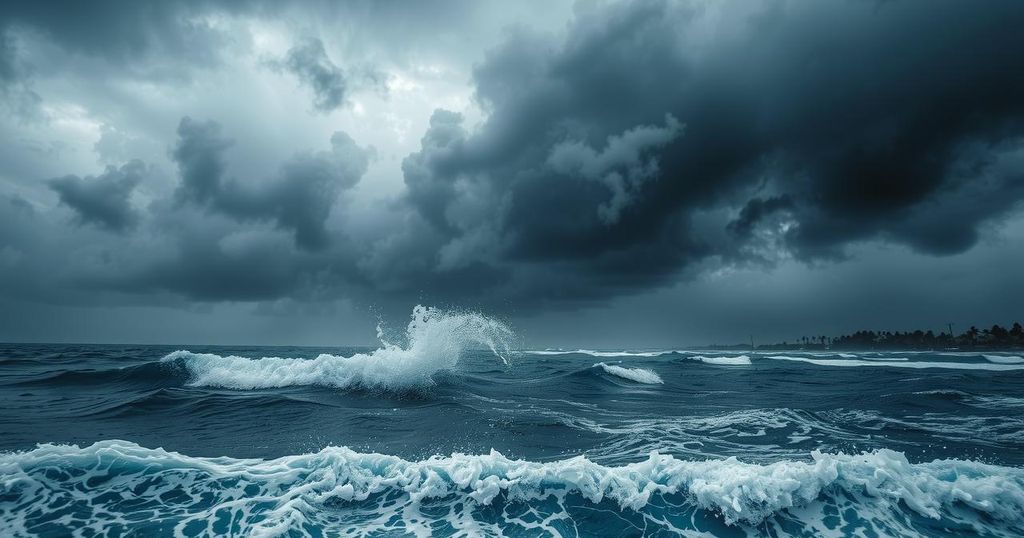Madagascar Faces New Cyclone Threat After Elvis Causes Fatalities

Madagascar is preparing for Tropical Cyclone Faida on February 4, following Cyclone Elvis, which resulted in five fatalities. The impact of recent storms emphasizes the necessity for improved disaster preparedness in the face of climate change. Moreover, experts are convening to develop better forecasting methods in Southern Africa amidst increasing storm activity.
Madagascar is currently preparing for Tropical Cyclone Faida, expected to strike its northern coast on February 4, while recovering from the aftermath of Cyclone Elvis, which has resulted in the deaths of at least five individuals. According to a report from the European Civil Protection and Humanitarian Aid Operations (ECHO), these fatalities occurred during lightning incidents in the Vohibato district. Additionally, two individuals were reported injured due to the storm’s effects.
Cyclone Elvis originated over the Mozambique Channel on January 28 and made landfall on Madagascar’s southwestern coast on January 29, bringing heavy rain and winds of up to 84 kilometers per hour (52 miles per hour). The cities of Toliara and Taolagnaro recorded significant rainfall, measuring 196 and 178 millimeters (7.7 and 7 inches) respectively over a five-day period. The cyclone subsequently dissipated in the southern Indian Ocean over the weekend.
In parallel, Madagascar is now dealing with the consequences of Tropical Cyclone Faida, which formed on January 23 over the southern Indian Ocean, impacting Mauritius and Réunion Island on February 2 before heading towards northern Madagascar. The ECHO report from February 3 indicates that Cyclone Faida has maximum sustained winds of 65 km/h (40 mph) with an expectation of strengthening as it moves westward, targeting regions such as Analamanga, Alaotra Mangoro, Analanjirofo, Atsinanana, and Sofia following landfall.
Local authorities on Réunion Island have urged residents to remain vigilant for weather advisories and to prepare emergency supplies in anticipation of the storm’s arrival. Prior to Cyclone Elvis, Madagascar experienced significant devastation from Tropical Cyclone Dikeledi, which caused severe flooding and landslides, resulting in at least 10 fatalities and severely impacting local wildlife, including tortoises.
Experts have recently convened in Zambia to explore methods for improving storm forecasting in Southern Africa. According to the U.K. Met Office, the region is expected to face an increase in storm activity due to the ongoing impacts of climate change. This trend follows the havoc inflicted by Tropical Cyclone Chido in December.
Madagascar frequently faces the brunt of tropical cyclones due to its geographic location in the Indian Ocean. The recent patterns indicate an increase in the frequency and intensity of such storms, aggravated by climate change. The ongoing storms highlight the critical need for improved disaster preparedness and response strategies in the region. Past cyclones, including Dikeledi and Chido, have caused significant loss of life and damage to both human and wildlife populations, warranting an urgent need for enhanced weather forecasting techniques.
In summary, Madagascar is grappling with the consequences of Cyclone Elvis while bracing for the impending impact of Cyclone Faida. The recent storms have resulted in fatalities and severe property damage, underscoring the urgent need for improved disaster preparedness. As climate change continues to exacerbate storm frequency and intensity in the region, initiatives aimed at enhancing forecasting methods will be vital for safeguarding lives and ecosystems.
Original Source: news.mongabay.com







